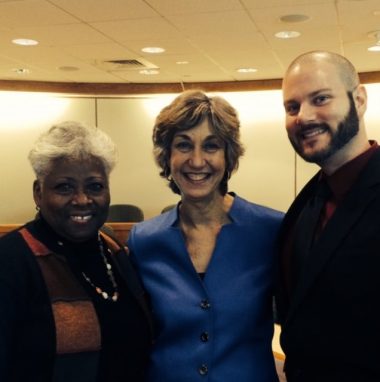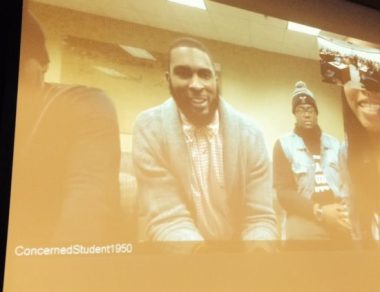The national climate around student protests and diversity efforts sparked Harvard University to invite alumnus Matthew Antonio Bosch to share diversity achievements, ongoing challenges, and conversations on student activism.

Speaking to a crowded room at Harvard University’s Graduate School of Education, Matthew Antonio Bosch, director of Elon’s Gender & LGBTQIA Center, discussed the national climate surrounding student protests, campus climate, and the power and promise of diversity efforts made by universities across the United States.
A major component of the talk involved questions from graduate students in the Higher Education program asking about Bosch’s career path as well as successes and challenges related to diversity efforts across multiple institutions. Bosch has worked at private and public universities across the states of New York, Massachusetts, Minnesota, and North Carolina and completed a six-year term on the national board of the American College Personnel Association.
Given the recent national attention received by many universities including the University of Missouri, Yale, Claremont McKenna, Ithaca College, students wanted Bosch’s take on how to effectively impact change that advocates for the enhancement of students’ well-being in an authentic way that includes their voices. “While no college is utopian, we strive to make our students feel validated, valued, and victorious at Elon,” Bosch responded to one student question. “Sometimes we succeed, but we cannot stay complacent. We have to keep checking in with students, asking the difficult questions about what’s next, what else are we missing, and how can students empower themselves and rally together to create the necessary changes which will make the university better, safer, and more affirming for students yet to come.”
Additional topics discussed during the talk included Elon’s recent “Top 25 LGBTQ-Friendly Universities in the U.S.” ranking from CampusPride, as well as the challenges of changing campus culture over time. On the latter, Bosch says, “We can change lots of inclusive policies and implement new programs, and to some people that can feel like a massive change. Yet to others, it can feel like the culture still doesn’t change, and that takes LGBTQIA people, it takes straight allies, it takes people who “get it” and are willing to learn, and it takes time which can be difficult to amass when 2 semesters are already 25% of a student’s time in college.”

The students supported the idea that areas of campus connected to diversity should also be supported by multiple areas across campus. Bosch shared that Elon’s Gender & LGBTQIA Center reports both to the Provost’s Office through the Inclusive Community area as well as through the division of Student Life, ensuring that multiple voices are at the table in decision-making and inclusion efforts. Additionally, the Gender & LGBTQIA Center sits on the Advisory Council for the academic department of Women’s, Gender, & Sexualities Studies (WGSS.)
This marked the second consecutive year Harvard hosted Bosch as alumni speaker on diversity topics. He graduated from Harvard University’s Graduate School of Education in 2003.


